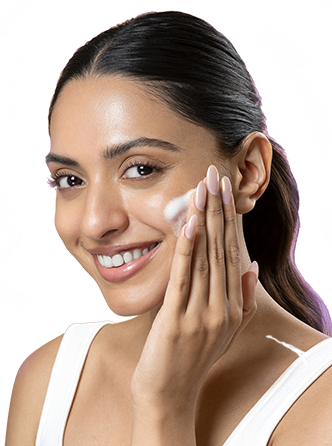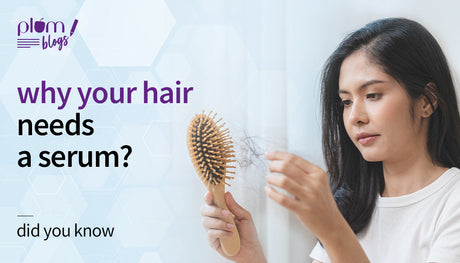
IN THIS ARTICLE
If you experience flaking and itching on your scalp, you might have put it down to dandruff. But did you know that flaking and itching are also classic signs of a dry scalp? It is very easy to confuse one condition with the other because they have very similar characteristics. However, you must know that there are significant differences between dry scalp and dandruff, both requiring very different treatments.
If you’re looking to get rid of those flakes for good, it is important to identify which condition you’re actually dealing with. Trust us, you don’t want to be wasting time and money on solutions that either do nothing for you or make your existing condition worse!
So let’s dive into it...
How to Distinguish Between Dandruff & a Dry Scalp
Simply put, a dry scalp is the result of a lack of moisture. And much like dry skin, a dry scalp can also cause light flaking and itching. On the other hand, dandruff is the condition in which dead skin cells start building and clustering on the scalp. Eventually, these dead skin cells (large, white flakes) that have accumulated on the scalp fall off. This condition is often accompanied by redness and itchy rashes as well.
|
Symptoms |
Dandruff |
Dry scalp |
|
Itchy scalp |
Yes |
May or may not |
|
Scalp appearance |
Oily, may be red or inflamed |
Scaly, dry |
|
Types of flakes |
Large and oily, either yellow or white in appearance |
Smaller, dry |
What Causes Drying on the Scalp
One of the most common causes of a dry scalp is overwashing. If you’re washing your hair too often, especially with hot water, you’re not letting your skin and hair keep the oils being produced naturally. This results in your scalp becoming dry and flaky. Besides this, using hair products that do not suit your scalp or even environmental factors like weather fluctuations, pollution, and sun exposure can also result in scalp dryness.
How to Treat Dry Scalp?
Here are some ways to treat dry scalp, approved by experts.
-
Avoid over-washing your hair
Over-washing your hair can significantly reduce moisture content in your scalp and make it dry and flaky. Though there is no ideal frequency for washing your hair, you should restrict it to twice or thrice a week. However, depending on your lifestyle and hair type, you can alter the frequency. For example, if you have oily hair or sweat a lot, you can shampoo every two days. For dry hair, once or twice a week is typically enough.
-
Make sure to use cold water for your last rinse
While it is advised to wash your hair with warm water, you must end your shower with a cold rinse. It helps seal the cuticles and retains moisture in the scalp, reducing dryness and flakiness.
-
Use a gentle, SLS-free shampoo that hydrates your scalp and nourishes your hair
Avoid using shampoos that contain SLS as they are harsh on your scalp, sucking up the natural oils and moisture. Use SLS-free shampoos that are devoid of harmful chemicals like parabens, phthalates, etc. You can also look for products with natural ingredients like hibiscus, coconut milk, aloe vera, etc., that nourish your scalp and reduce dryness.
-
Opt for deep oil massage
The best solution to dryness and flakiness is keeping your scalp nourished. Indulge in a deep oil massage once a week with your favorite oil like onion oil, coconut oil, jojoba oil, argan oil, etc., and leave it in for 30 minutes before washing your hair. This helps soften the scalp skin and repair the damaged skin barrier, reducing flakiness. However, do not keep the oil for too long or use excess oil as it can clog your pores, causing dandruff and hair fall.
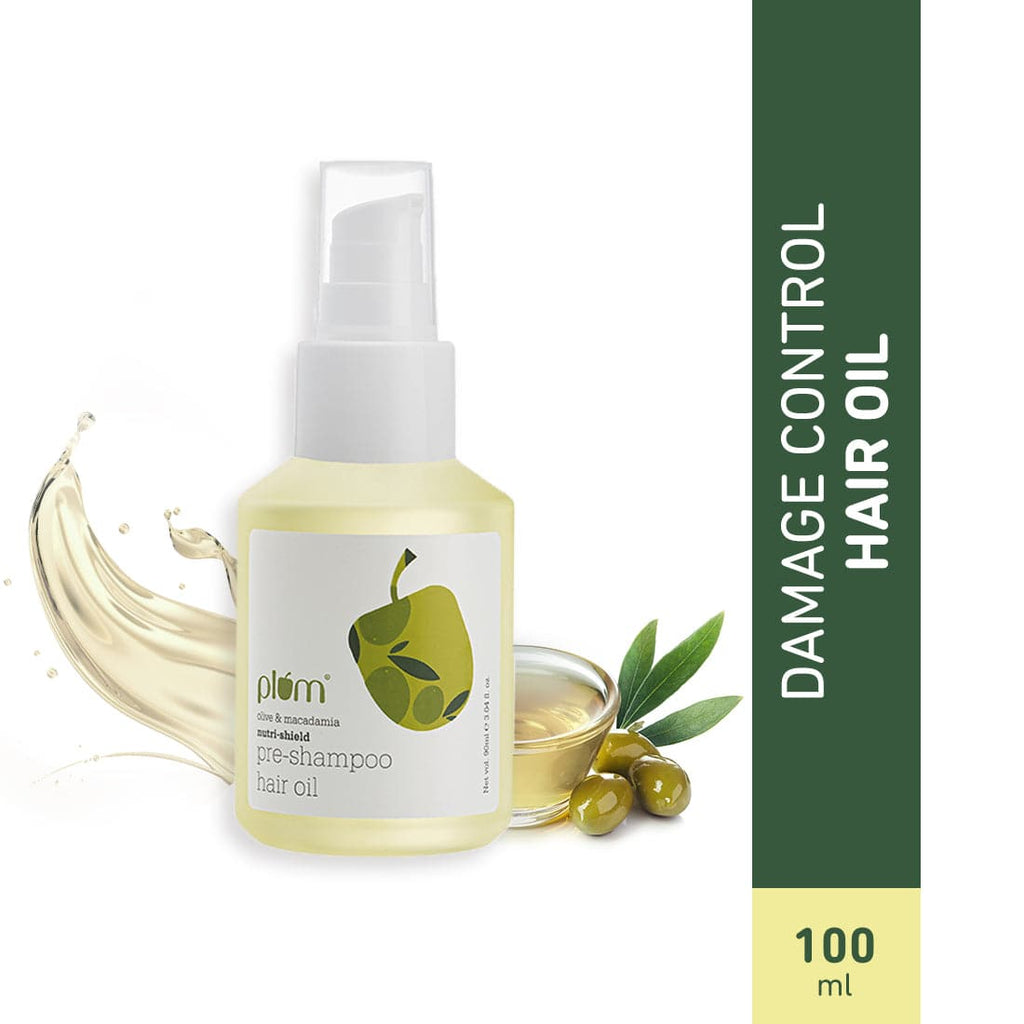
Olive & Macadamia Nutri-Shield Pre-Shampoo Hair Oil
Hydrates | Strengthens | Nourishes Hair
What Causes Dandruff?
A mild form of seborrheic dermatitis, dandruff is caused due to the overproduction of oil and a fungus called Malassezia furfur that lives on our scalp. These fungi thrive on oily scalps; they feed on excess sebum (oil) which results in dead skin cells clumping together to form the white flakes we call dandruff.
How to Treat Dandruff?
Here are some ways to treat dandruff, approved by experts you must know
-
Include tree tea oil in your haircare routine.
Use a shampoo that is loaded with science-backed dandruff fighters like tea tree oil and propanediol caprylate that help treat existing dandruff and curtail the formation of new dandruff.
-
Do not scratch your scalp.
Avoid scratching, no matter how tempting it is! The more you scratch to relieve itchiness, the worse the condition is going to get.
-
Be gentle while brushing.
While it is advised to exfoliate your scalp to aid cell turnover, be gentle while doing so. You can use a scalp scrub before shampoo to help remove dandruff flakes and buildup on the surface. Using a gentle hairbrush or wooden comb with light pressure and slow strokes can help prevent further irritation on your scalp. This also helps with blood circulation, and if your scalp tends to produce more oil in a certain area, brushing can help spread it evenly across your hair and scalp giving you balanced moisturization.
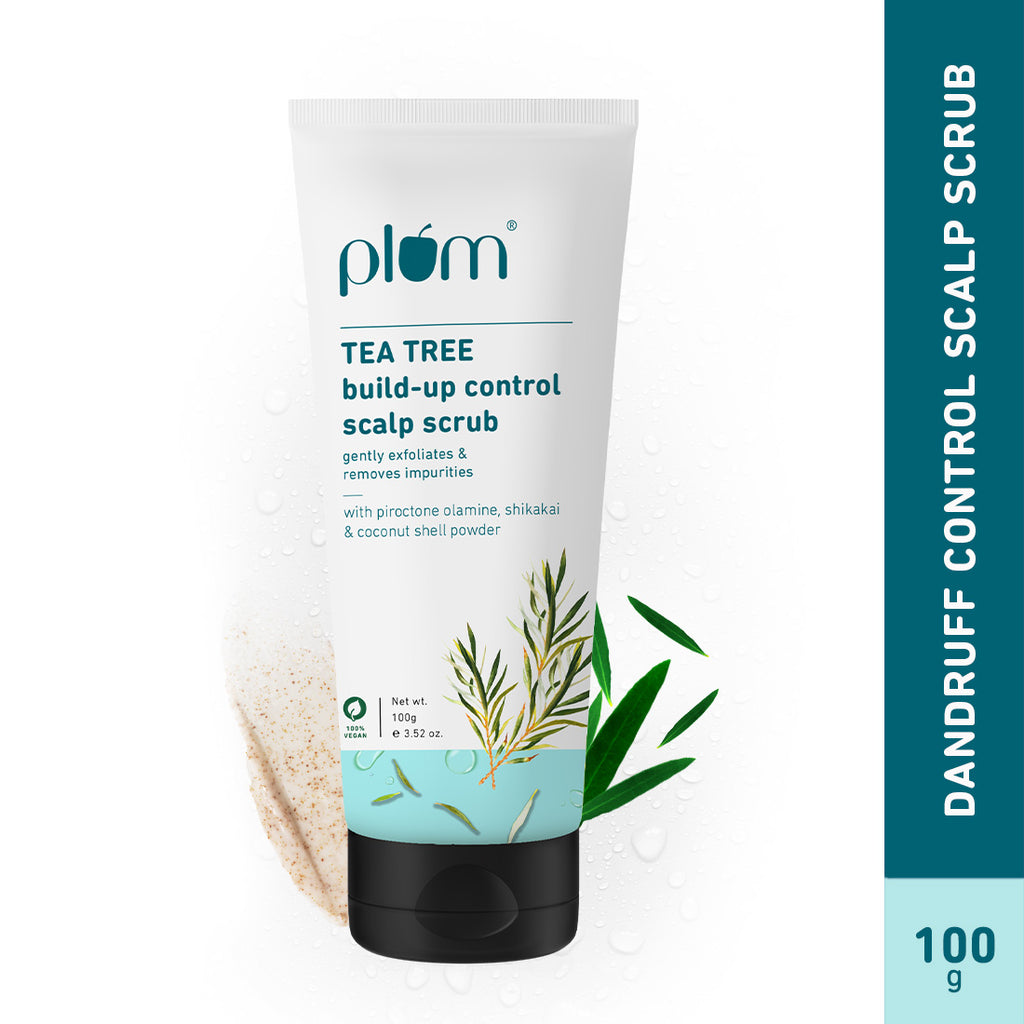
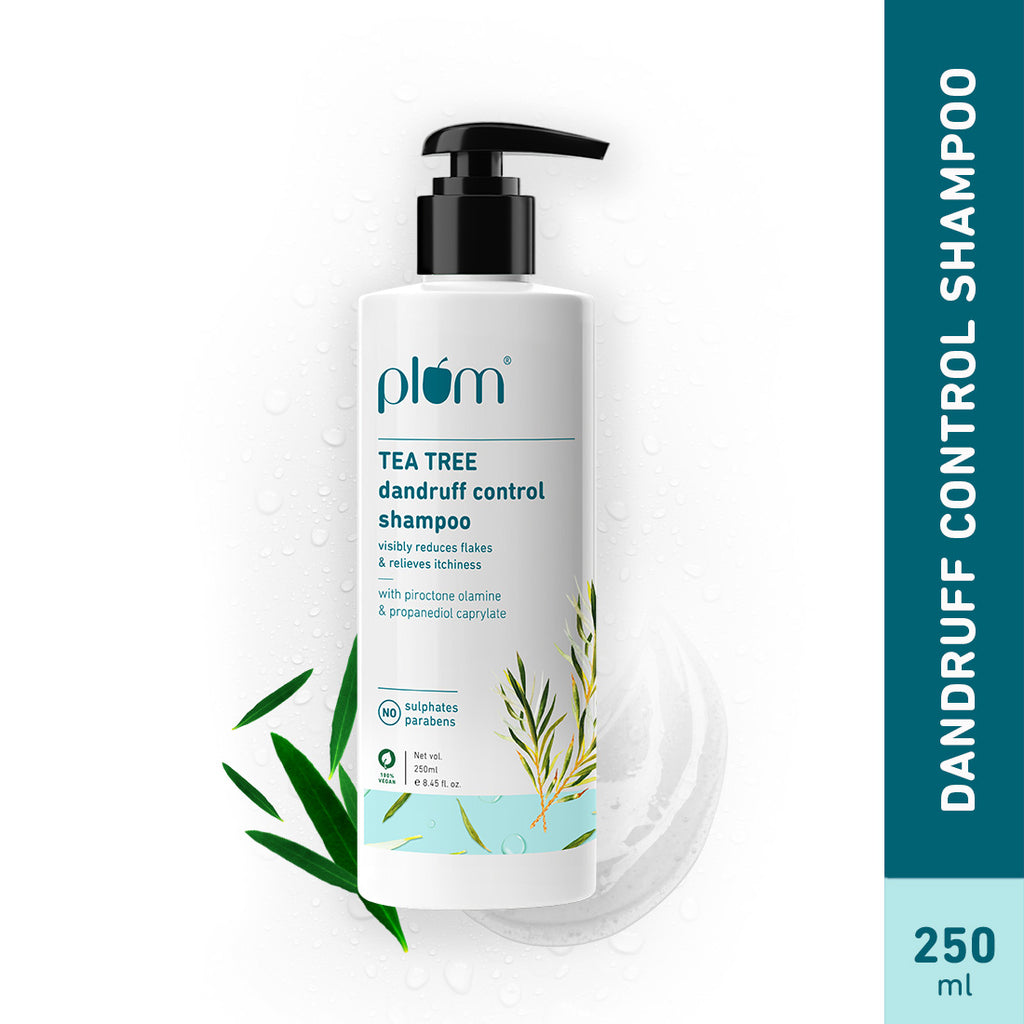
Tea Tree Dandruff Control Shampoo
Controls Dandruff | Reduces Itchiness | Reduces Flakiness | Soothes Scalp
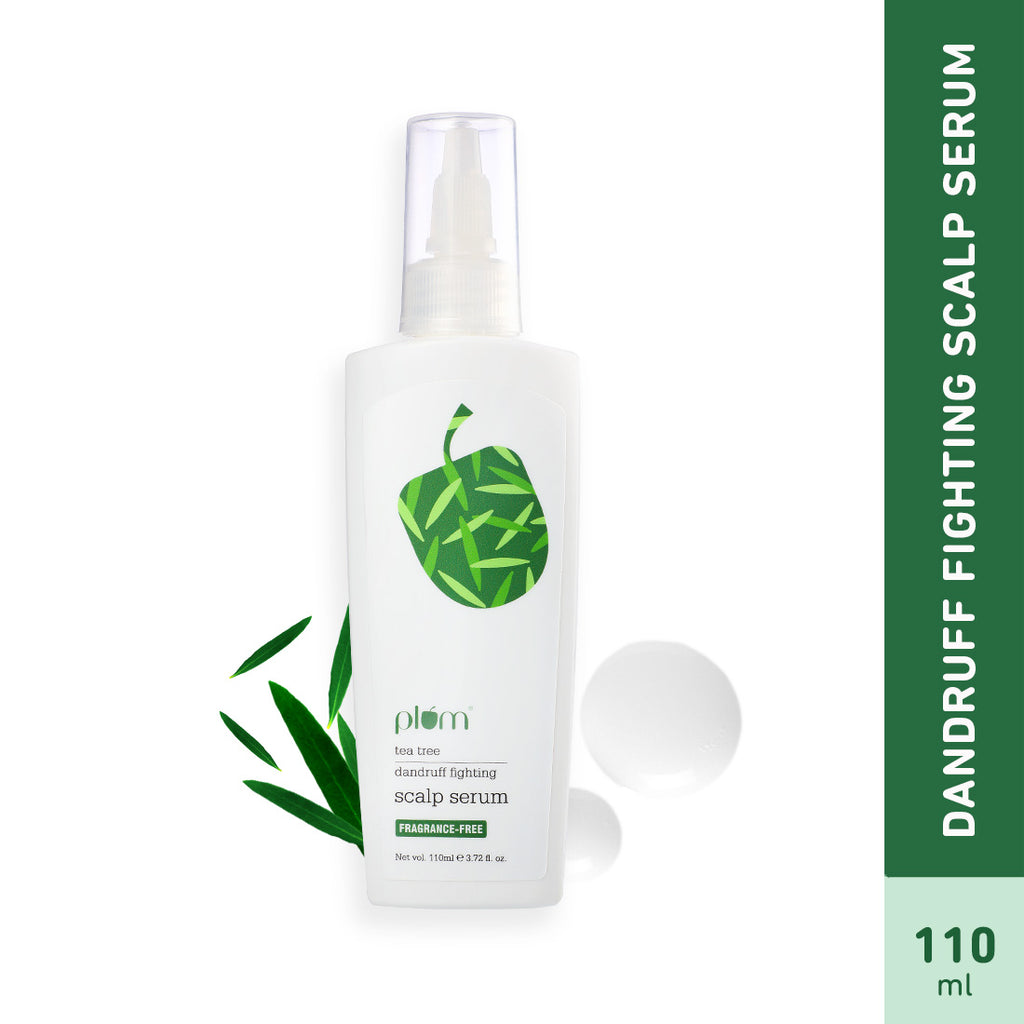
Tea Tree Dandruff Fighting Scalp Serum
Anti-Dandruff Treatment for Scalp | Soothes Scalp
When to See a Dermatologist
If you are having trouble figuring out if you have a dry scalp or are in fact dealing with dandruff, we recommend speaking with your dermatologist. Besides this, if you notice your condition getting worse wherein your scalp is feeling increasingly itchy, red, swollen, or painful to touch, it's definitely time to pay your dermat a visit.
Takeaway
If ‘is dry scalp the same as dandruff’ is a question you often look for, it is high time you know the difference between the two to get the correct line of treatment. While you can treat a dry scalp by adequately nourishing your scalp, you might need specific ingredients like tree tea to treat dandruff. With approaching winters, ensure that you have the right haircare routine to avoid both conditions and have healthy hair.
FAQs
Q1. Does dandruff have a cure?
While you may not be able to cure dandruff completely, you can definitely take steps to treat and prevent it from recurring, as explained above.
Q2. How can I ease the symptoms of a dry scalp?
If you have a dry scalp, wash your hair with a gentle shampoo and then use a moisturizing conditioner. One way to tell whether you have a dry scalp or dandruff is to apply a light moisturizer to your scalp before you go to bed. If the cause is a dry scalp, the flakes should disappear once you shower the next morning.
Q3. I have yellow flakes. Is that normal?
While yellow flakes are common, it could be a sign that you are dealing with a much more intense form of dandruff. Therefore, we recommend consulting your dermatologist for an appropriate diagnosis.


